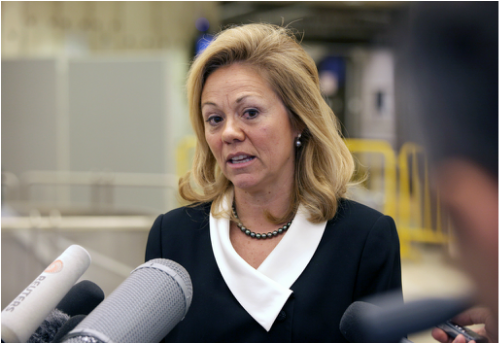|
The Ebola story is instructive on a number of levels when it comes to communication and public response. It's helpful to keep these points in mind when responding to any public issue, but especially one where the public's health is at the center. 1. People want information. The faster you can communicate, the more you keep people from going elsewhere and possibly getting false or misleading information. 2. People jump to conclusions. It's human nature to assume the worst. This is why point #1 is so important. And what about the media? Do they help or make matters worse in the case of a story like Ebola? Well, probably a little of both. 3. People form much of what they believe about an issue upon first impression. Again, it's just the way we're wired to make judgments based on what we first see and hear.
4. Bad news travels fast while the truth can take time to surface. It's what leads to speculation and second-guessing. 5. It can be difficult to sort truth from rumor when multiple authorities are involved. It's why it's so important for everyone to speak from the same page and be in agreement about the problem and the response to the problem. And what about the media? Do they help or make matters worse in the case of a story like Ebola? Well, probably a little of both. Talk radio and cable news shows can perpetuate some of the speculation and second-guessing, but they can also ask the pointed questions that the public would want to ask if they could. The key point in all of this is to be prepared for how you will communicate to the public during a crisis. Do you have a plan? Do people know what the plan is and how to implement it? Mack Communications | Follow us on Twitter: @mack_comm
0 Comments
Leave a Reply. |
tags
All
Archives
March 2019
|
Photos from Meet the Media Guru, Joseph.Morris, BoldContent, MDGovpics, Grzegorz Łobiński, Mr Moss, North Charleston, ITU Pictures, wistechcolleges, .v1ctor Casale., www.audio-luci-store.it, katielips, editor64, NeighborLink Fort Wayne, AMagill, timsackton, MyFWCmedia, Matt J Newman, Mr.TinDC, Skley, mikecogh, othompsonski, wayne's eye view, Elvert Barnes, woodleywonderworks, North Charleston, MoBikeFed, flossyflotsam, North Charleston, NYCDOT, US Mission Geneva, jjandames, aalborgstift, BurnAway, A. Germain, North Charleston, NCDOTcommunications, IAEA Imagebank, The Chapman Cultural Center, hitsnooze, Wiertz Sébastien, charliekwalker, cliff1066™, TheeErin, woodleywonderworks, dane brian, Aramil Liadon, 2010 World Wheelchair Basketball Championships, Ty Nigh, freddthompson, Nadia Szopinska, west.m, stormwarning., Bright Meadow, Giorgio Montersino, Chris Erwin, Aplomb, jfingas, joce01_y, Massachusetts Dept. of Environmental Protection, Kevin Walter, Andrew Feinberg, Yan Arief, kellypretzer, Korean Resource Center 민족학교, veDro - l'Italia al futuro, crdotx, US Mission Geneva, Joe Shlabotnik, esocialmediashop, Stephen Cummings, CarbonNYC, sidewalk flying, MoBikeFed, marksdk, Marco Raaphorst, Saleel Velankar, adactio, edkohler, World Economic Forum, USACE Europe District, stereogab, Florin Rosoga, MikeSchinkel


